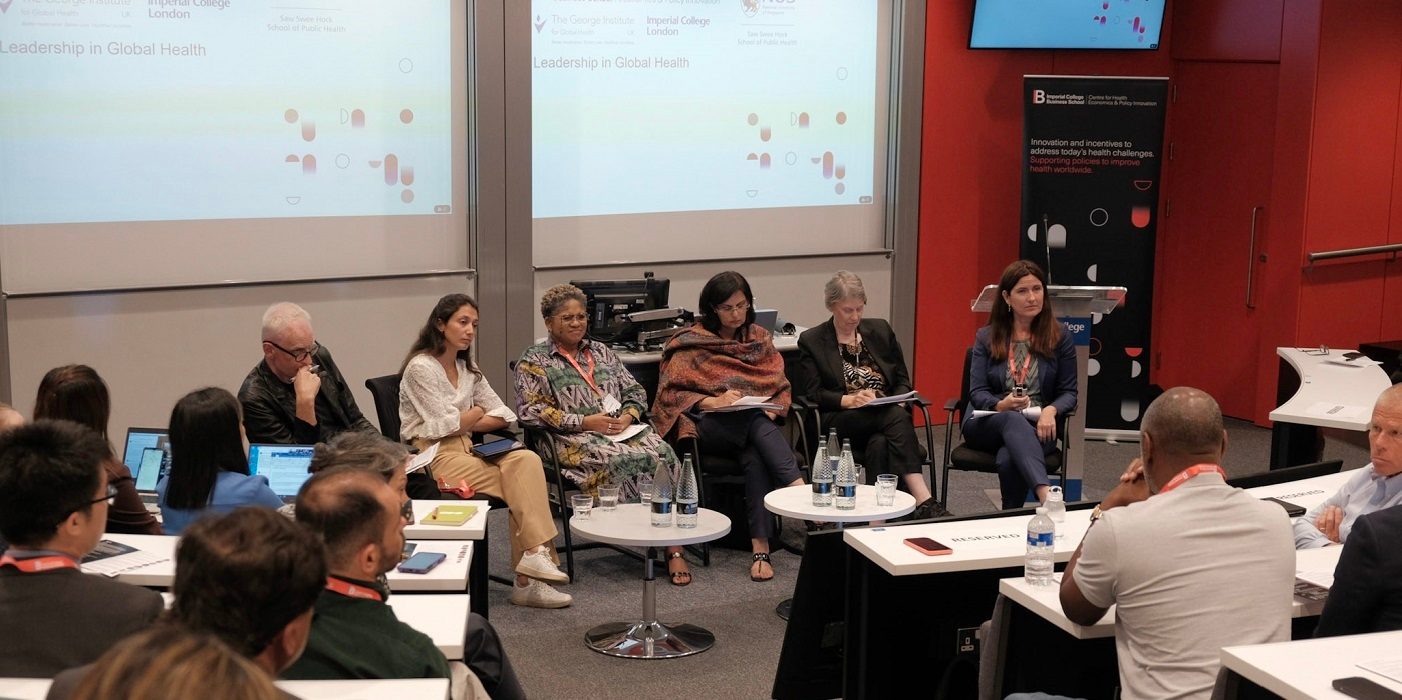
Meet Helena Legido-Quigley: an advocate for global health progress through health policy and systems change
It was the potential to make population-level impact on health that prompted Prof Helena Legido-Quigley, newly appointed Chair in Health Systems Science at The George Institute, to carve out a career in health policy and systems.
“After my Master’s degree I volunteered to run a non-governmental organisation in South Africa where we worked to design home-based HIV care strategies. It was immensely fulfilling but I remember thinking that I’d helped several hundred people, and reflecting that working with – and helping to influence – health policy and systems change had the potential to make an impact of a different magnitude.”
This recognition has shaped Helena’s career and interests. Her PhD at the London School of Hygiene and Tropical Medicine explored the impact of austerity measures on the health of people in Spain while her research focus over a five-year tenure at the Saw Swee Hock School of Public Health in Singapore focused on chronic conditions and integration of services.
At heart, Helena is committed to understanding individuals in their wider context through qualitative research - skills well-honed in her work on migrant health, healthcare access, and the social determinants of health.
“People rarely just talk about a disease – they will share co-existing conditions and their experiences of managing these alongside economic and social demands. It’s important that we hear these challenges at individual and population levels.”
Helena has brought many ongoing collaborations to her role at the Institute, where she is building the Health Systems Science Programme. Much of this work focuses on identifying what makes for the most effective health system or policy via comparative analysis. This can be measured through so-called ‘tracer’ conditions, for instance diabetes, which can be used to track health gains while factoring in financing, human resourcing, service delivery, and leadership considerations.
“We’re lacking strong leadership in global health. I recently contributed to a team investigating the strong leadership qualities needed to inspire population-level trust. We identified empathy, listening skills, and the ability to bring together divergent views.”
In her role as Chair of the NUS-Lancet PRIME Commission, she has been able to compile her 'dream team' working in pandemic preparedness, universal health coverage, economics, behavioural sciences, chronic disease, and more.
The hope of the Commission is to develop a biannual report of pandemic preparedness indicators with country-level monitoring, in a similar vein to the Lancet Countdown on health and climate change. Helena is keen for these indicators to be distilled into a combined marker of progress, to alleviate the load on countries of collecting data on multiple indicators.
While she wears many hats, Helena brings people with her. She speaks animatedly of her commitment to fostering the next generation of academics and health researchers.
“I consider myself fortunate to have a fantastic mentor. Admittedly, they only came into the picture after I’d been in academia for a decade and had already made many mistakes. The reality is that academia is not an easy career option for many, not least because of the challenges of short-term contracts, gender biases in progression, as well as the question of what makes for equitable leadership and partnership in global health. I aim to pass my mentorship on - I find great pleasure in teaching and championing balance in work and life, although this is something I need to keep reminding myself about!”
Reflecting on equitable partnerships, Helena notes that the global health community needs to have a more transparent dialogue around power – and act to redistribute it. Although much of Helena’s own work goes on in the background – the academic behind the policymaker so to speak – her voice for progress in global health is impactful. Indeed, she was recently named one of the 500 most influential women in Spain (no doubt reflecting her founding role in the Women in Global Health Spain chapter, and her leading response as part of the Se Acabó movement, meaning ‘Enough is Enough’, which is calling for an end to the mistreatment of women).
In a conflicted and divided world that uniquely challenges those working in global health, Helena reminds herself that her life’s work is contributing to helping people, particularly those in marginalised and displaced populations. She has also found plenty of ways to relax and unwind.
“Great friends, good wine, travel, and swimming in the sea - although this is somewhat easier in my hometown of Barcelona than London! Also reminding one another we are doing our best and praising others.”
You can learn more about The George Institute’s Health Systems Science Programme here


